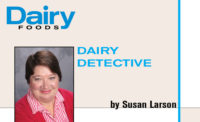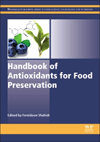Clean-label trend expands beyond ingredients
Transparency and consumer education are musts

Clean label is big business. Euromonitor International estimates that global sales of clean-label food products will reach $180 billion by 2020.
Clean label used to mean a food or beverage was free from artificial flavors, colors and preservatives. But the category has evolved. Now consumers want to know the origin of the ingredients in their food and beverages, and how those food and beverages were processed. Clean-eating consumers scrutinize not only the ingredients, but also the sustainability, traceability and animal welfare practices of the brands they purchase. Clean label has also been defined as simple and transparent.
With so many potential lanes of the clean-label movement to explore, dairy companies should be able to find one or more clean-label niches that fit specific company brands.
Clean-label opportunities
Here are some opportunities and updates for dairy in the clean/ethical label space:
Simple. Despite the growth of plant-based dairy alternatives, milk remains a clean, simple ingredient. Plain fluid milk has three ingredients — milk, vitamin A and vitamin D. Popular brands of soy or almond milk contain 10 or more ingredients.
Organic. A Cargill white paper shows that 68% of consumers associate “organic” with clean label. Attributes not associated with clean label include “made with ingredients that sound like a chemical” (55%) and “contains GMOs” (44%).
According to Nielsen Homescan data, millennial households spent 8% more on organic products in the 52-week period ending Feb. 23, 2019, than in the previous 52-week period. Hispanics spent 12% more than in the previous period.
No GMOs. The new USDA GMO/bioengineered regulations were finalized in December 2018. They define GMO foods, but do not define non-GMO. The new rule exempts milk that comes from animals fed with bioengineered ingredients, as well as foods certified under the National Organic Program.
Dairy companies that produce cheese or yogurt made with bioengineered yeasts or rennet should review the new law closely. New regulations state that “those substances may be exempted if they qualify as an incidental additive or if they do not contain detectable modified genetic material.”
Grade A. One year ago, Unilever started putting “Partnering with American Farmers — 100% Grade A Milk and Cream” on packages of Breyer’s ice cream. The new label exemplifies the company’s ongoing pledge to source only the highest-quality ingredients and support the livelihood of American farmers.
Local. Shatto Milk Co. is a small family-owned and family-operated dairy farm near Kansas City, Mo. It promotes its local products through tours of the farm and processing facility. Shatto also packages its milk in environmentally friendly glass bottles.
Grassfed. According to Euromonitor International, consumers are increasingly sensitive to animal welfare. The market research firm’s most recent “Lifestyle and Beauty Survey” showed that 29.1% of consumers’ purchasing decisions were influenced by “free-range” features versus 18.8% that were influenced by “grass-fed/pasture-raised” features.
Plant-based alternatives. It’s interesting to note that some dairy-alternative proteins are produced in a fermentation tank with a genetically engineered microbe. But certain consumers are willing to accept GMOs and a long list of ingredients in these products because they feel that they are helping the planet.
Transparency and consumer education
All food is composed of chemicals. The food industry needs to educate consumers about the function of specific ingredients.
As a Certified Food Scientist, I support Noel Anderson, the new president-elect of International Food Technologists (IFT), who stated, “We need to overcome the growing consumer distrust of science in our food supply. Advocating for the science of foods is critical to achieve IFT’s vision and mission.”
Clean label is ultimately about transparency and maintaining the confidence of your consumers.
Looking for a reprint of this article?
From high-res PDFs to custom plaques, order your copy today!







